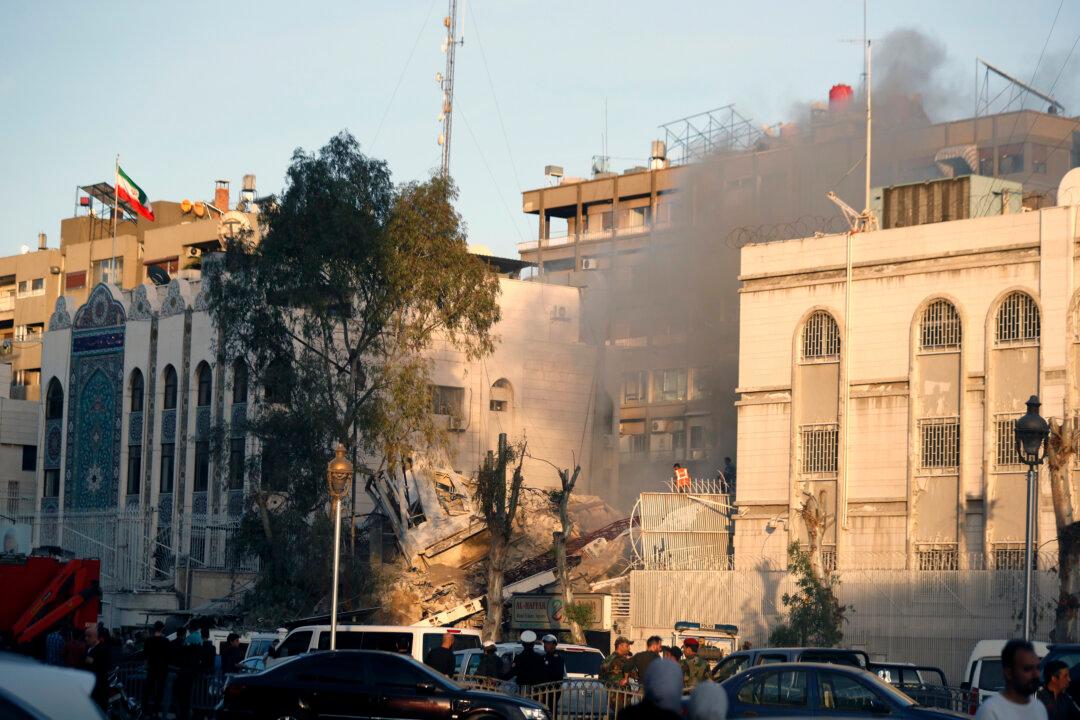Tehran has promised a “harsh” response to a suspected Israeli airstrike that killed seven Iranian military officers and six Syrian nationals in Damascus, Syria.
“Having failed to destroy the will of the resistance front, the Zionist [Israeli] regime is again resorting to indiscriminate assassinations,” Iranian President Ebrahim Raisi said on April 2.





